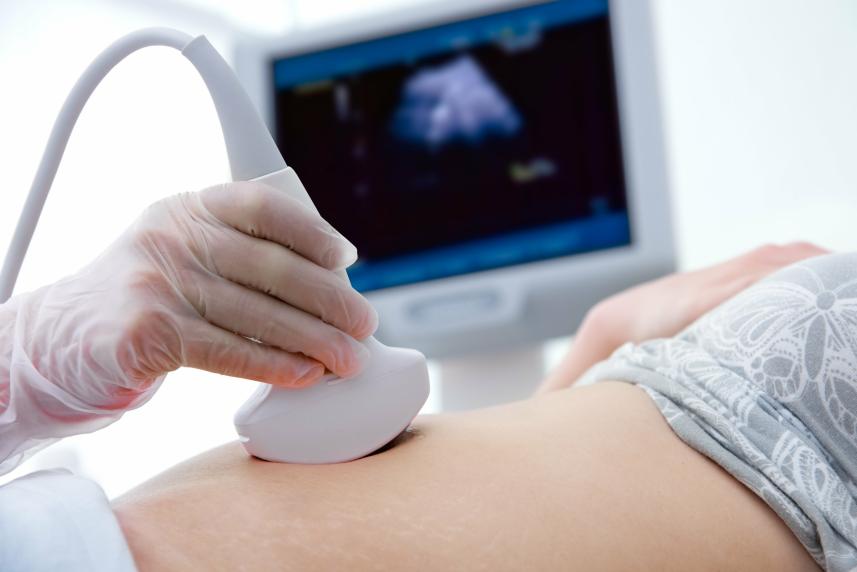Second trimester testing
What to expect during your prenatal appointments

During your checkups, you will be offered certain prenatal tests to check on your health and to see how the baby is developing.
Your baby’s first portrait
You may have had an ultrasound to confirm your pregnancy. Your care provider may schedule another ultrasound at 18–22 weeks. This will give you a much better view into your baby’s growth, position, and gender, if you choose to know.
2nd Trimester
A targeted ultrasound is done in the second trimester between 18 and 21 weeks. This test is used to look at the anatomy and structure of the fetus. Late in the second trimester, you may be screened for diabetes, hepatitis B, retested for sexually transmitted infections, and may have a pelvic examination to check cervical length and dilation.
3rd Trimester
A few weeks before your due date, your care provider will perform the test that checks for group B strep infection. About 20 percent of all women may be carriers of this bacteria. It usually does not cause any illness for adults, but it can cause an infection in newborns. Women who test positive for group B strep will receive intravenous antibiotics in labor. If you have any risk factors, your baby may be watched more closely, with additional ultrasounds and non-stress tests, which tracks the baby’s heart rate and contractions.
Look out for warning signs of complications
Some women are at risk for complications during pregnancy, so it’s important to recognize that something may be wrong and when to seek medical care. Know the warning signs and call your doctor immediately if you experience any of the following symptoms.
Preeclampsia/Eclampsia
- Persistent headaches
- Blurry vision, spots, or flashes of light
- Nausea or vomiting
- Swelling in your hands or feet, progressing to the face and eyelids
- Sudden weight gain of two pounds per week or six pounds per month
- Pain in the upper right side of your abdomen
- Shortness of breath
- Seizures
Preterm labor
- Six to eight tightening instances or contractions in an hour
- Leaking of fluid
- Any vaginal bleeding
- Low back pain, abdominal cramps, or pressure in your pelvis
- Diarrhea
Blood clot
- Chest pain
- Difficulty breathing or shortness of breath
- A leg that is red, swollen, warm, or tender to the touch
If you experience any of these symptoms, contact your doctor immediately. If you feel your life may be in danger, call 911.
We know that having a new baby is an exciting new change in your life. We hope this information is helpful so that you can be and stay healthy for your growing family.
Yours in good health,
Baby BluePrints


